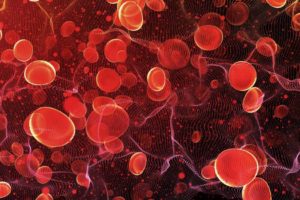
Dopamine is a neurotransmitter involved with feelings of reward and motivation. It plays significant and minor roles in memory, cognition, attention and learning, too. It also aids in decision making and sleep regulation. Dopamine is mainly generated in the brain, as opposed to serotonin being released in both, and mostly in the gut. Not only will you feel a drive to get something done when taking a dopamine supplement, you will also feel a great sense of satisfaction when it has been completed. I’m going to be listing the best supplements for dopamine.
One study found that bergamot, lavender, and lemon essential oils are particularly therapeutic. Using your sense of smell, they prompt your brain to release serotonin and dopamine. Also, dopamine acts as an aphrodisiac.
If you do not have the right amount of dopamine in your system, you can often have symptoms of depression and lethargy. There are also prescription drugs, such as Adderall, that can overproduce this chemical in your brain to the point of overdoing it. From this, you can end up feeling depressed, anxious and lethargic for the proceeding few days. Dopamine acts as a hormone and adjusts differences in mood and memory as well. Since serotonin and dopamine are distinctly tied, they often are controlled by many of the same supplements.
Dopamine is a type of neurotransmitter. Your body makes it, and your nervous system uses it to send messages between nerve cells. That’s why it’s sometimes called a chemical messenger. Dopamine plays a role in how we feel pleasure. It’s a big part of our unique human ability to think and plan.
Under normal circumstances, dopamine production is managed effectively by your body’s nervous system. However, there are various lifestyle factors and medical conditions that can cause dopamine levels to plummet. Symptoms of low dopamine levels include loss of pleasure in things that you once found enjoyable, lack of motivation and apathy. You should also always try to consume at least some the nutrients from food. If you can’t get enough from your diet, you can always supplement them in pill form. If you have a hard time doing this, you are probably not eating the right food.
Vitamin D
Yes, Vitamin D is back again, that that’s because it’s uses are never ending. Not only is Vitamin D a supplement, it’s a hormone your body naturally produces through cholesterol in the skin from UV rays. Vitamin is an essential vitamin, and it has always been there to help with growth. If you don’t get enough sun, you will often find that life is more of a struggle.
When your skin is exposed to sunlight, it makes vitamin D from cholesterol. The sun’s ultraviolet B (UVB) rays hit cholesterol in the skin cells, providing the energy for vitamin D synthesis to occur. Vitamin D has many roles in the body and is essential for optimal health.
Vitamin D has many roles in your body, including the regulation of certain neurotransmitters like dopamine. One study showed decreased dopamine levels in vitamin-D-deprived mice and improved levels when supplementing with vitamin D3. Since research is limited, it’s difficult to say whether vitamin D supplements would have any effect on dopamine levels without an existing vitamin D deficiency. Preliminary animal studies show promise, but human studies are needed to better understand the relationship between vitamin D and dopamine in people.
Caffeine
Studies have found that caffeine can boost cognitive performance, including by enhancing the release of neurotransmitters, such as dopamine. It’s thought that caffeine improves brain function by increasing dopamine receptor levels in your brain.
Caffeine, the most widely consumed psychoactive substance in the world, is used to promote wakefulness and enhance alertness. Like other wake-promoting drugs (stimulants and modafinil), caffeine enhances dopamine (DA) signaling in the brain, which it does predominantly by antagonizing adenosine A2A receptors (A2AR).
However, your body can develop a tolerance to caffeine, meaning it learns how to process increased amounts. Therefore, you may need to consume more caffeine than you did before to experience the same effects.
Fish Oils
Fish oil supplements primarily contain two types of omega-3 fatty acids: eicosapentaenoic acid (EPA) and docosahexaenoic acid (DHA). Fish oil has many good benefits for the brain and body, and they are not limited to dopamine. Many studies have discovered that fish oil supplements have antidepressant effects and are linked to improved mental health when taken regularly.
These benefits may be attributed in part to fish oil’s influence on dopamine regulation. For instance, one rat study observed that a fish-oil-enriched diet increased dopamine levels in the frontal cortex of the brain by 40% and enhanced dopamine binding capabilities.
These benefits may be attributed in part to fish oil’s influence on dopamine regulation. For instance, one rat study observed that a fish-oil-enriched diet increased dopamine levels in the frontal cortex of the brain by 40% and enhanced dopamine binding capabilities. However, more human-based research is needed to make a definitive recommendation.
Magnesium
Magnesium plays a vital role in keeping your body and mind healthy. Magnesium and its antidepressant qualities are still not fully understood, but there is evidence that magnesium deficiency may contribute to decreased dopamine levels and an increased risk of depression. What’s more, one study showed that supplementing with magnesium boosted dopamine levels and produced antidepressant effects in mice.
Magnesium is an important mineral, playing a role in over 300 enzyme reactions in the human body. Its many functions include helping with muscle and nerve function, regulating blood pressure, and supporting the immune system.
Like other supplements, you don’t have to get in from a pill. Food is always the best way to receive your nutriets. Currently, research on the effects of magnesium supplements on dopamine levels is limited to animal studies. However, if you’re unable to get enough magnesium from your diet alone, taking a supplement may be a good idea to ensure you’re meeting your requirements.
Green Tea
Green tea has long been touted for its antioxidant properties and nutrient content. It also contains the amino acid L-theanine, which directly affects your brain. L-theanine can increase certain neurotransmitters in your brain, including dopamine. Multiple studies have shown that L-theanine increases dopamine production, thus causing an antidepressant effect and enhancing cognitive function.
Additionally, studies suggest that both green tea extract and frequent consumption of green tea as a beverage can increase dopamine production and are associated with lower rates of depressive symptoms. Summary Green tea contains the amino acid L-theanine, which has been shown to increase dopamine levels.
Additionally, studies suggest that both green tea extract and frequent consumption of green tea as a beverage can increase dopamine production and are associated with lower rates of depressive symptoms.
Probiotics
Probiotics are live microorganisms that line your digestive tract. They help your body function properly. Also known as the good gut bacteria, probiotics not only benefit gut health but may also prevent or treat various health problems, including mood disorders. In fact, while harmful gut bacteria have been shown to decrease dopamine production, probiotics have the ability to increase it, which may boost mood.
Probiotics are important not only for digestive health but also for many functions in your body. They’ve been shown to increase dopamine production and improve mood in both animal and human studies.
Several rat studies have shown increased dopamine production and improved mood and anxiety with probiotic supplements. Additionally, one study in people with irritable bowel syndrome (IBS) found that those who received probiotic supplements had a reduction in depressive symptoms, compared to those who received a placebo. While probiotic research is rapidly evolving, further studies are needed to fully understand the effect of probiotics on mood and dopamine production. You can add probiotics to your diet by consuming fermented food products, such as yogurt or kefir, or taking a dietary supplement.
Ginseng (The Best Supplements for Dopamine)
Ginseng has been used in traditional Chinese medicine since ancient times. Its root can be eaten raw or steamed, but it’s also available in other forms, such as tea, capsules or pills. Studies have shown that ginseng may enhance brain skills, including mood, behavior and memory. Many animal and test-tube studies indicate that these benefits may be due to ginseng’s ability to increase dopamine levels.
May Benefit Brain Function. Ginseng could help improve brain functions like memory, behavior and mood. Some test-tube and animal studies show that components in ginseng, like ginsenosides and compound K, could protect the brain against damage caused by free radicals
It has also been suggested that certain components in ginseng, such as ginsenosides, are responsible for the increase of dopamine in the brain and for beneficial effects on mental health, including cognitive function and attention. One study on the effects of Korean red ginseng on attention deficit hyperactivity disorder (ADHD) in children observed that lower levels of dopamine were associated with symptoms of ADHD.
The children involved in the study received 2,000 mg of Korean red ginseng daily for eight weeks. At the end of the study, the results showed that ginseng improved attention in children with ADHD. However, further studies are needed to draw definite conclusions about the extent to which ginseng enhances dopamine production and brain function in humans.
Curcumin (The Best Supplements for Dopamine)
Curcumin is the active ingredient in turmeric. Curcumin comes in capsule, tea, extract and powdered forms. It’s thought to have antidepressant effects, as it increases the release of dopamine. One small, controlled study found that taking 1 gram of curcumin had similar effects as that of Prozac on improving mood in people with major depressive disorder (MDD).
Curcumin possess antidepressant activity through modulating the release of serotonin and dopamine. Curcumin enhances the level of neurotrophic factors such as brain derived neurotrophic factor (BDNF). Another exciting use of curcumin is in the treatment of diabetic neuropathy.
There is also evidence that curcumin increases dopamine levels in mice. However, more research is needed to understand curcumin’s role in increasing dopamine levels in humans and its use in the management of depression.
Ginkgo Biloba (The Best Supplements for Dopamine)
Ginkgo biloba is a plant native to China that has been used for hundreds of years as a remedy for various health conditions. Although research is inconsistent, ginkgo supplements may improve mental performance, brain function and mood in certain people.
Studies have suggested that it may raise testosterone levels in some animals, but science hasn’t proved that it can increase testosterone levels or fertility in humans. Limited evidence suggests it may help boost sexual function and desire in males and females.
Some studies have found that supplementing with Ginkgo biloba in the long term increased dopamine levels in rats, which helped improve cognitive function, memory and motivation. One test-tube study showed that Ginkgo biloba extract appeared to increase dopamine secretion by reducing oxidative stress. These preliminary animal and test-tube studies are promising. However, further research is needed before scientists can determine if Ginkgo biloba also increases dopamine levels in humans.
Oregano Oil
Oregano oil has various antioxidant and antibacterial properties that are likely due to its active ingredient, carvacrol.One study showed that ingesting carvacrol promoted dopamine production and provided antidepressant effects in mice as a result.
Seeds and nuts such as sunflower, pumpkin and milk thistle also boost dopamine and norepinephrine levels. Herbs that can help raise dopamine levels include ginseng, nettles, red clover, fenugreek, dandelion and peppermint.
Another study in mice found that oregano extract supplements inhibited the deterioration of dopamine and induced positive behavioral effects. While these animal studies are encouraging, more human studies are warranted to determine whether oregano oil provides similar effects in people.
Mucuna Pruriens (The Best Supplements for Dopamine)
Mucuna pruriens is a type of tropical bean native to parts of Africa, India and Southern China. These beans are often processed into a dried powder and sold as dietary supplements. The most significant compound found in Mucuna pruriens is an amino acid called levodopa (L-dopa). L-dopa is needed for your brain to produce dopamine. Research has shown that Mucuna pruriens helps boost dopamine levels in humans, particularly those with Parkinson’s disease, a nervous system disorder that affects movement and is caused by a dopamine deficiency.
Mucuna pruriens (Fabaceae) is an established herbal drug used for the management of male infertility, nervous disorders, and also as an aphrodisiac. It has been shown that its seeds are potentially of substantial medicinal importance.
In fact, studies have indicated that Mucuna pruriens supplements may be just as effective as certain Parkinson’s medications at increasing dopamine levels. Mucuna pruriens may also be effective in boosting dopamine levels in those without Parkinson’s disease. For example, one study found that taking 5 grams of Mucuna pruriens powder for three months increased dopamine levels in infertile men. Another study found that Mucuna pruriens had an antidepressant effect in mice due to an increase in dopamine production.
Berberine (The Best Supplements for Dopamine)
Berberine is an active component present in and extracted from certain plants and herbs. It has been used in traditional Chinese medicine for years and has recently gained popularity as a natural supplement.
Mucuna pruriens (Fabaceae) is an established herbal drug used for the management of male infertility, nervous disorders, and also as an aphrodisiac. It has been shown that its seeds are potentially of substantial medicinal importance.
Several animal studies show that berberine increases dopamine levels and may help fight depression and anxiety. Currently, there is no research on the effects of berberine supplements on dopamine in humans. Therefore, more research is needed before recommendations can be made.
Ways to Increase Dopamine Fast and Naturally:
- Eat Lots of Protein
- Eat Less Saturated Fat
- Consume Probiotics
- Eat Velvet Beans
- Exercise Often
- Get Enough Sleep
- Listen to Music
- Meditate
- Get Plenty of Sunlight
- Consider Supplements (There are plenty more)
Rhodiola: It’s a plant used in traditional medicine in Eastern Europe and Asia, and it has effects on the central nervous system by supporting the reuptake of dopamine, making it more readily available and accessible. It has been reported to reduce depression, anxiety, and stress-related fatigue, along with an increase in the ability to manage stress.
Rhodiola rosea has been classified by some researchers as an adaptogen, meaning that it helps to make you less prone to physical and emotional stress. Research has shown that this natural medicine may stimulate serotonin, norepinephrine and dopamine activity.
L-theanine: It’s another amino acid that is only found in green tea and might help to boost brain dopamine levels. Users have reported stress-relieving effects and feeling relaxed yet alert, and it may help to improve focus.
L-theanine elevates levels of GABA, as well as serotonin and dopamine. These chemicals are known as neurotransmitters. They work in the brain to regulate emotions, mood, concentration, alertness, and sleep. Additionally, they help with appetite, energy, and other cognitive skills.
L-tyrosine: It’s a type of dopamine supplement. It is an essential amino acid that is a precursor of neurotransmitters including dopamine. Tyrosine can be taken through your diet or synthesized in the body. It has been reported to improve mood, regulate sleep, and help ease emotional stress.
Central dopamine function is reduced by decreasing the availability of the catecholamine precursor, tyrosine, using a tyrosine-free amino acid mixture containing multiple large neutral as well as branched chain amino-acids, which compete with tyrosine for uptake into the brain.
B Vitamins: B vitamins also play a small but crucial role in the synthesis of dopamine in our bodies. Neurotransmitters are produced within our neurons via the interaction of various chemicals — including several B–vitamins. For instance, vitamin B6 (pyridoxine) aids the formation of neurotransmitters like dopamine, which is involved in our experience of reward, happiness and pleasure.
Neurotransmitters are produced within our neurons via the interaction of various chemicals – including several B-vitamins. For instance, vitamin B6 (pyridoxine) aids the formation of neurotransmitters like dopamine, which is involved in our experience of reward, happiness and pleasure.
Alpha-GPC: Alpha-GPC administration increases the release of the neurotransmitter acetylcholine and facilitates learning and memory. In athletes, Alpha-GPC supplementation prevents exercise-induced reductions in choline levels, increases endurance performance and growth hormone secretion. Alpha GPC can also raise dopamine levels, which benefits brain function significantly.
Neurotransmitters are produced within our neurons via the interaction of various chemicals – including several B-vitamins. For instance, vitamin B6 (pyridoxine) aids the formation of neurotransmitters like dopamine, which is involved in our experience of reward, happiness and pleasure.
Illicit Drugs: There are also illicit drugs that can make a massive difference in your dopamine level. These are often illegal and best avoided, especially in large quantities, as they neurotoxic and full of side effects. These are drugs like cocaine, meth, prescription stimulants (i.e., Adderall, Vivance and Ritalin), and more. These prescription stimulants are best avoided unless a doctor prescribes them under necessary circumstances, e.g, ADD and ADHD.
For someone who has been abusing Adderall for an extended period of time, the emotional aspect of withdrawal may be the most noticeable side effect. Natural production of dopamine is reduced, causing low moods and trouble feeling pleasure without the drug.
Dopamine is an important chemical in your body that influences many brain-related functions, such as mood, motivation and memory. Generally, your body regulates dopamine levels well on its own. However, some medical conditions and diet and lifestyle choices can lower your levels. Along with eating a balanced diet, many possible supplements may help boost dopamine levels, including probiotics, fish oil, vitamin D, magnesium, ginkgo and ginseng.
This, in turn, could help improve brain function and mental health. Each of the supplements on this list has a good safety profile when used properly. However, some supplements may interfere with certain prescription or over-the-counter medications. It’s always best to talk to your healthcare provider or registered dietitian. They can help to determine if certain supplements are right for you.

















Recent Comments